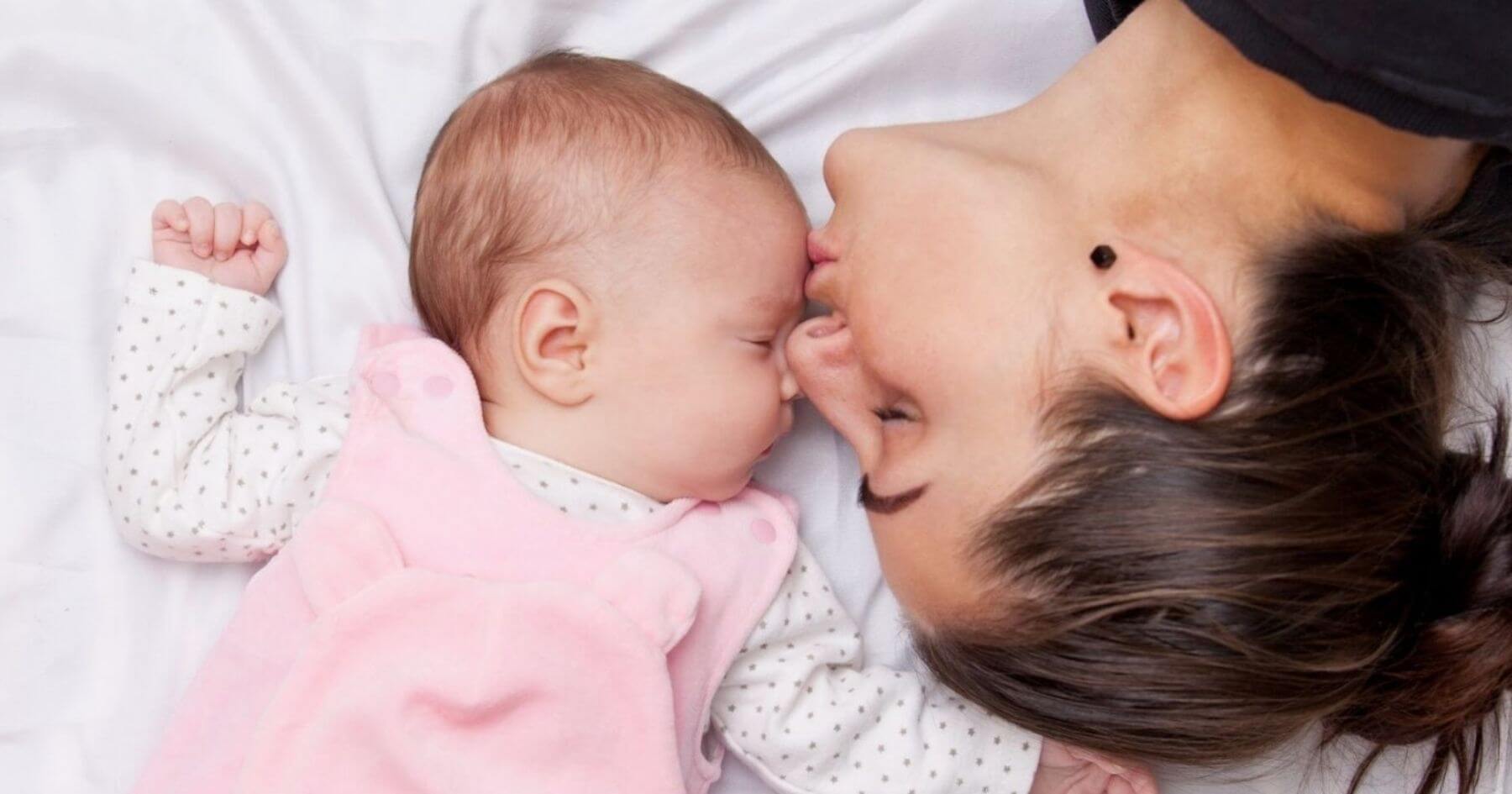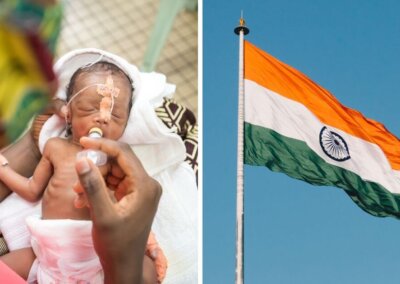Immediate skin-to-skin contact increases a premature baby’s chances of survival according to a new study.
Researchers at Karolinska Institutet, co-ordinated by the World Health Organization (WHO), found that this method, known as ‘kangaroo mother care’ (KMC), has the potential to save the lives of 150,000 more premature babies every year when compared with current recommendations.
Presently, the WHO recommends starting KMC only after the baby has been stabilised in an incubator which can take three to seven days.
However, the study, published in the New England Journal of Medicine, found that during the first 28 days after birth, babies who received ‘immediate kangaroo mother care’ (iKMC) and continued skin-to-skin contact had a 25% reduction in their mortality rate compared to babies who did not receive iKMC.
Dr Nils Bergman, researcher at the Department of Women’s and Children’s Health, Karolinska Institutet, Sweden, and one of the authors behind the study, said: “The idea of giving skin-to-skin contact immediately after delivery to very small, unstable babies has encountered quite strong resistance, but about 75% of deaths occur before the infant has been judged sufficiently stable”.
Mortality decreased by 25%
The clinical trial took place in five university hospitals in Ghana, India, Malawi, Nigeria, and Tanzania, where, prior to the study, mortality for these babies varied from 20% to 30%.
In the study, 3,211 prematurely born babies were randomly assigned to two groups. The first received immediate kangaroo mother care (iKMC) and continued skin-to-skin contact at the neonatal unit. The second, a control group, received standard care, where mothers and babies are cared for in separate units and were only reunited during infant feeding.
During the first 72 hours, the babies in the first group received approximately 17 hours of skin-to-skin contact per day, compared with just 1.5 hours in the control group.
Mortality during the first 28 days was 12% in the iKMC group compared to 15.7% in the control group, a reduction of 25%.
Dr Rajiv Bahl, Head of the Newborn Unit at the WHO, and the coordinator of the study, said: “Keeping the mother and baby together right from birth with zero separation will revolutionise the way neonatal intensive care is practiced for babies born early or small”.
Another doctor behind the study, Harish Chellani, observed: “Healthcare providers have been separating small and sick babies from their mothers for decades believing that was best for them. The new evidence from this study means we must establish the practice of immediate kangaroo mother care globally”.
Right To Life UK spokesperson Catherine Robinson, said: “This study is important not only because, if implemented, it is likely to improve the survival rate for premature babies, but also because it shows the humanity of these babies. Sadly, there are babies in the womb at the same gestational age as these premature babies, who are aborted before they are born”.












